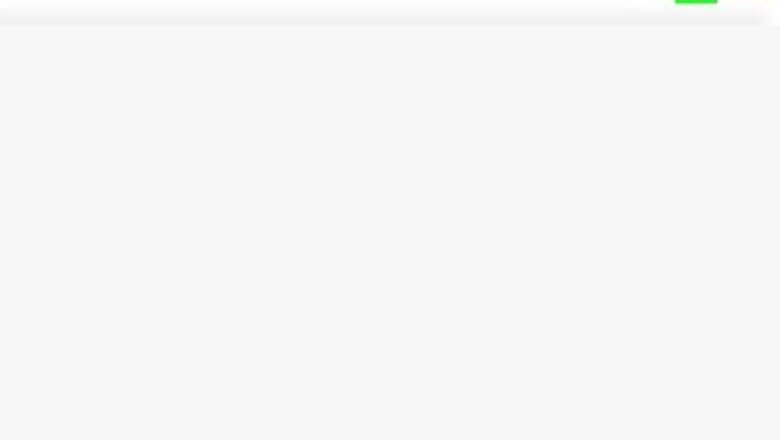
views
Using Internet Explorer 7+
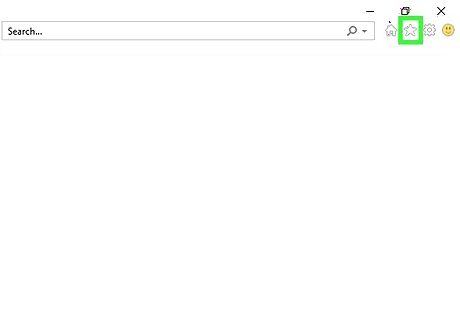
Click the Star button in the upper-right corner of the window. This will open the Favorites sidebar. You can also press Ctrl+H to jump straight to the History tab of the Favorites sidebar. The Ctrl+H shortcut also works on Google Chrome and Mozilla Firefox. Use ⌘ Cmd+H to access your browsing history on a Mac. In Internet Explorer 7 and 8, the Favorites button is located on the left side of the Bookmarks Bar. If you're using a Windows 8 tablet with the Modern version of Internet Explorer 11, you'll need to open Internet Explorer in Desktop mode to view the history. The only way to see your history in the Modern app is through the suggested sites when you start to type an address in. You can quickly switch to the Desktop mode by tapping the Wrench button and selecting "View on the desktop."
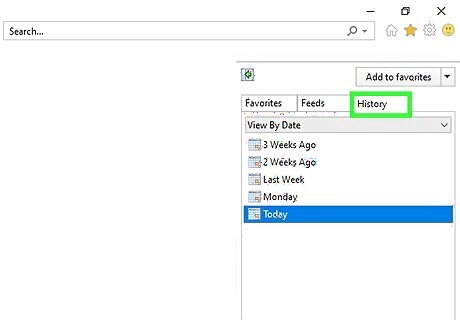
Click the "History" tab. This will already be selected if you press Ctrl+H to open the sidebar.
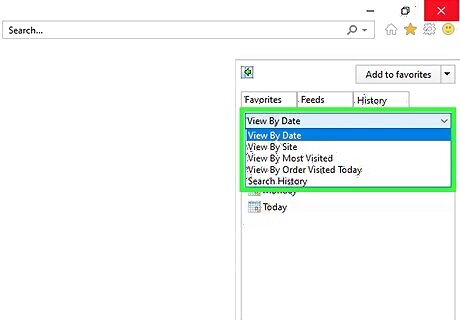
Decide how you want to organize the results. By default, your history will be sorted by date. You can use the drop-down menu at the top of the sidebar to sort by website name, most visited, and sites visited today.t to View By Date to change your viewing preference if desired. You may view a list of all websites, view by the most visited websites, view by the websites visited that same day, or search your history by entering search criteria.
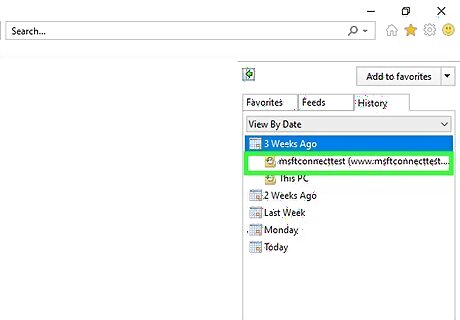
Click a result to open or expand it. Depending on your sorting preferences, your history may be organized into categories. Clicking one of these categories will display links to specific pages. For example, when viewing by site, clicking a website will show all of the pages on that site that you visited.
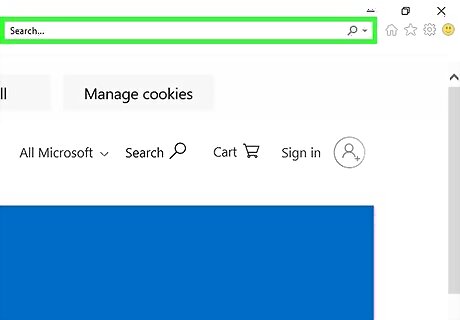
Search for a website using the "Search History" option. Select "Search History" from the drop-down menu to search for specific websites or pages that you've visited.
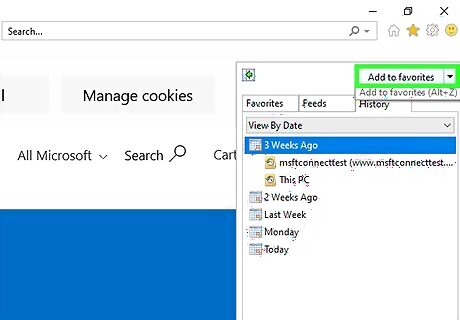
Create bookmarks from history entries. You can add any history entry to your bookmarks by right-clicking it and selecting "Add To favorites." You'll be prompted to select a location for the bookmark and can give it a name.
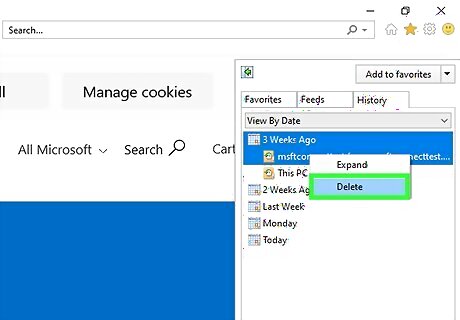
Delete an entry by right-clicking it and selecting "Delete." You can do this for individual entries or entire categories.
Using Microsoft Edge
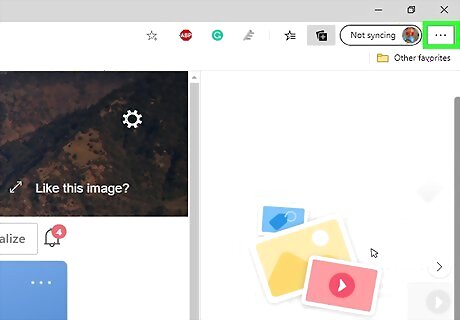
Click or tap the Hub button. You'll find this along the top of the window. The icon looks like a paragraph.
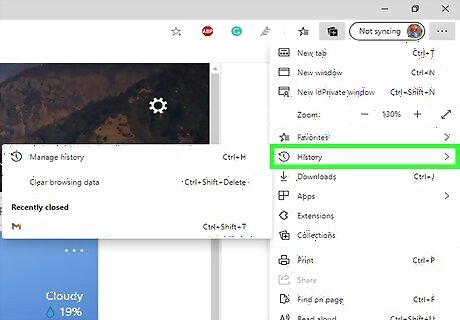
Click or tap the History tab. The icon looks like a clock. You can also press Ctrl+H to open this tab directly.
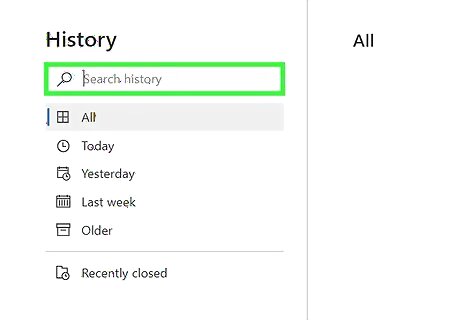
Find the history entry you are looking for. Your history is sorted by date in three ranges: Last hour, Last week, and Older.
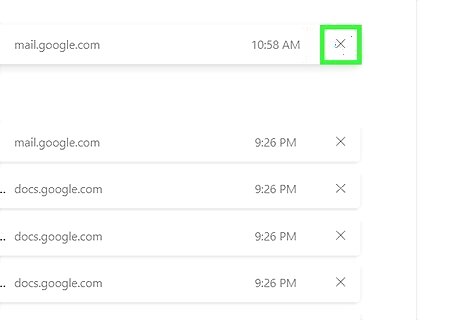
Delete an entry by clicking or tapping the "X" next to it. You can remove single entries or entire date ranges. You can also tap or click "Clear all history" to delete all entries. Ensure "Browsing history" is checked and then click "Clear."
Opening the History Folder
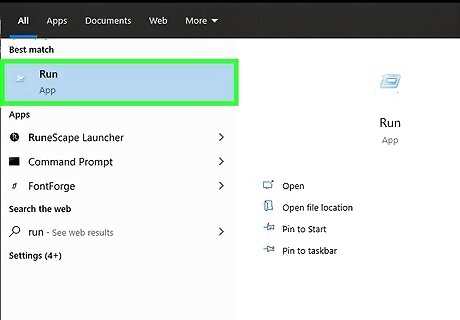
Open the Run window. You can find this in the Start menu or by pressing ⊞ Win+R.
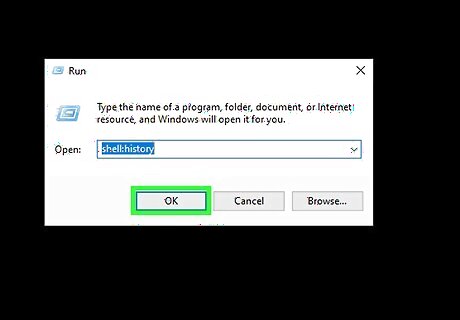
Type shell:history and press ↵ Enter. This will open the History folder for the current user. It is not possible to view the contents of another user's History folder, even if you are logged in as an administrator.
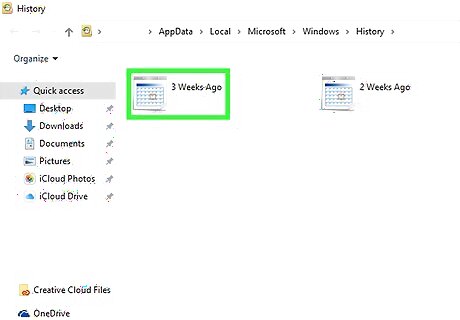
Select the date range you want to view. The History folder contains four folders: 3 Weeks Ago, 2 Weeks Ago, Last Week, and Today. Everything older than three weeks will be found in the 3 Weeks Ago folder.
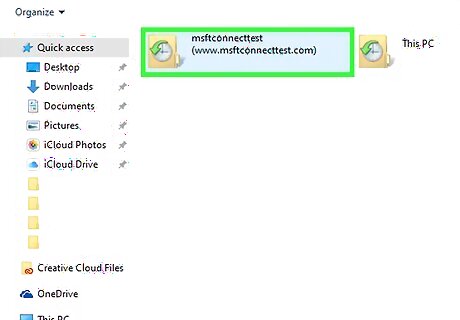
Select the website folder that you want to open. All of your history entries are sorted into website folders. Each folder will contain the links to the specific pages you visited.
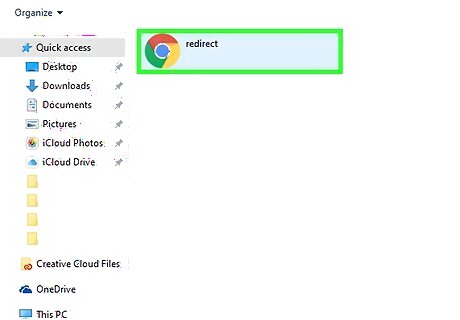
Double-click an entry to open it. It will load in your default browser, which may not be Internet Explorer.
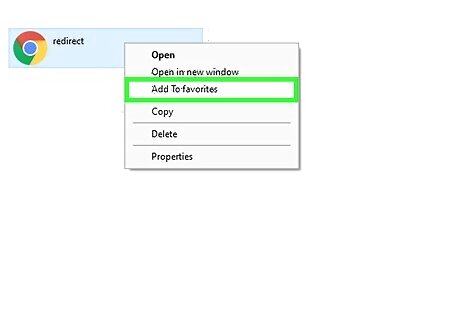
Add an entry to your bookmarks. Right-click a link in one of the folders and select "Add To favorites" to add it to your bookmarks. You'll be prompted to select a location and give it a title.
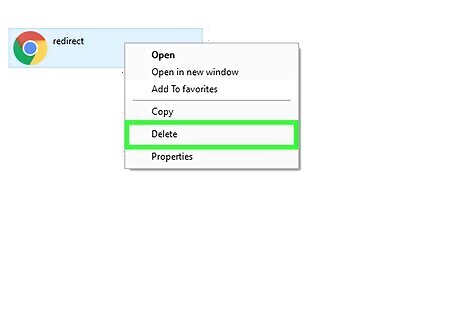
Delete entries. You can delete entries like you would any file in Windows. You can right-click one and select "Delete," or select multiple entries first. You can also drag entries to other locations or the Recycle Bin.




















Comments
0 comment